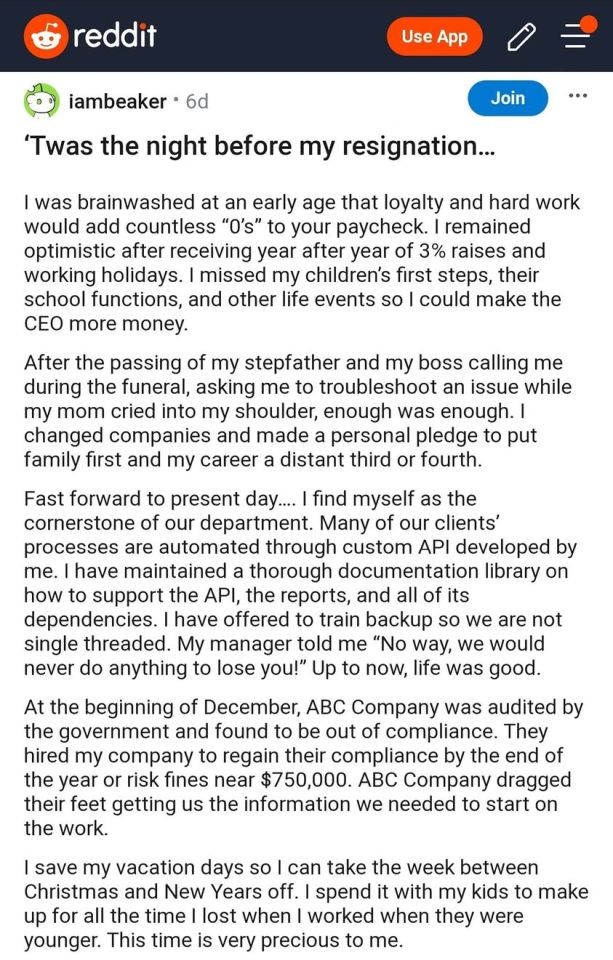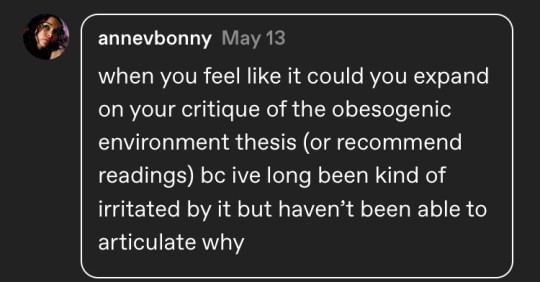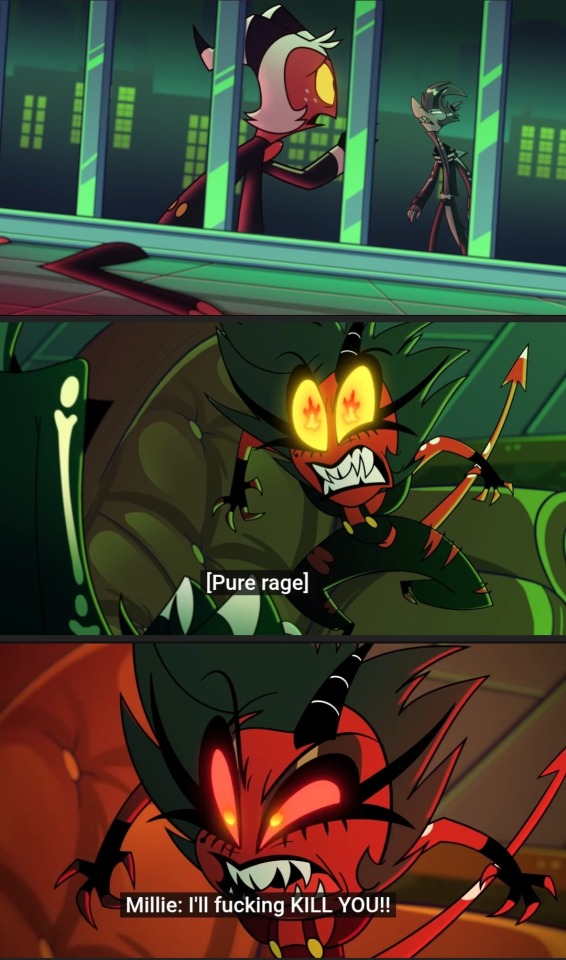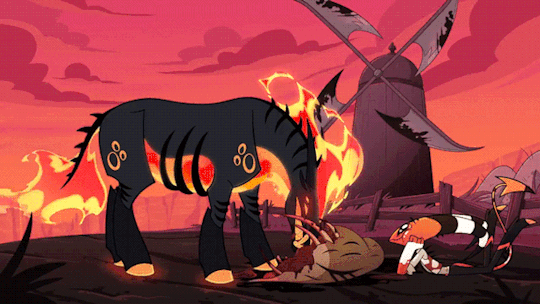#labour theory of value
Explore tagged Tumblr posts
Text
I feel like there's a divide between reasons why anti-capitalists opposed capitalism, which is pretty well determined by their stance on IP:
- As an IP abolitionist, I oppose capitalism because property rights stifle freedom; their purpose is to prevent people from using stuff and should only be employed when absolutely necessary, like with toothbrushes. It should not be employed with second or third houses the owner rarely even visit, and *definitely* should not be employed with non-scarce things like information (art, inventions, scientific knowledge, etc)
- pro-IP communists, on the other hand, seem to oppose capitalism because the bourgeoisie are leeches taking the surplus value of workers' labour, who deserve the full value of what they produce. It's a very zero-sum, meritocratic way of thinking imo, and I feel like I have more in common with anti-IP libertarians and ancaps than communists of this stripe, even though I agree more with the communists on object-level economic prescriptions.
#socialism#capitalism#communism#intellectual property#private property#personal property#IP#copyright#ltv#surplus value#labour theory of value
13 notes
·
View notes
Text
“You know you’re priced right when your customers complain—but buy anyway.” — John Harrison
Dynamic pricing is not new but it has not been widespread up until recently.
We all know about train fares being more expensive during peak times and parents know that holidays cost more during school breaks than at any other time of the year. Airline tickets are subject to dynamic pricing and there was a trend towards off-peak electricity tariffs at one time. This summer we saw tickets for Oasis concerts subject to dynamic pricing, resulting in massive spikes in the cost of a ticket.
Dynamic pricing is when a company changes their pricing to match demand and supply. Hence train journeys are more expensive during the rush hour than in the middle of the day when demand is lower. Holidays are more expensive during school breaks because demand is higher from families with children.
Few of us like this traditional method of dynamic pricing but we have accepted it as part of our way of life. The old fashioned dynamic pricing model was fairly unsophisticated and based on the time of day in the case of rail and airline tickets and specific weeks and months of the year in the case of holidays.
This is no longer the case. Artificial Intelligence allows companies to literally change prices in line with changes in demand every second if they so want. Some of the companies using AI to set prices are Amazon, Uber, Airbnb, Tesco, Ocado and Sky. Amazon is said to reset prices every ten minutes.
The days of “fixed pricing" are fast disappearing. Long gone are the days when a company added up all of its production costs to work out the cost per unit and then added a little bit more in order to make a profit. This was basically what is known as the objective or labour theory of value. This has been supplanted by the "subjective theory of value" (STV).
According to the subjective theory of value a products worth (price) is not determined by how much it costs to produce but by how much people are willing to pay for that good at any given moment. At its worst this means that ALL goods and services should be sold for maximum monetary return regardless of the cost of production. No wonder supporters of neo-liberal economics favour STV.
At one level this doesn’t really matter. Oasis concert tickets may have doubled in original price due to dynamic pricing but not being able to afford a concert ticket is not a matter of life or death. It is however, symptomatic of a growing social problem.
The assumption of neo-liberal economists and their support of STV pricing is that individual choice is paramount in all economic transactions. For the neo-liberal societal values do not exist, there is only individual choice. Mrs Thatcher, the woman who championed neo-liberal economics in the UK, famously said: “There’s no such thing as society”. Many Tory's still believe this to be true but they are demonstratively mistaken.
During Covid we all stood at our doors every Thursday night clapping and banging pots to applaud the bravery of our dedicated health professionals. Yes, we did this as individuals but also as a society. When the England football team were progressing through the stages of the European cup we watched each game as individuals but also as a nation. The same is true of the recent Olympic and Paralympic games.
Ironically, some of our most ardent neo-liberal Tory MP’s have been recently admonishing us for not being proud of our English identity. Robert Jenrick, a contender for the leadership of the Conservative Party said yesterday that English identity had “started to fray” due to mass immigration and public institutions “dismissing our history”.
Sorry, the neo-liberals cannot have it both ways. Either there is an entity called English society, with its own history and set of values, or we are just individuals all acting according to our own individual needs. The fact that latter view is obviously mistaken does not deter the advocates of dynamic pricing. For them the goal is maximisation of profit regardless of social cost.
A thousand reasons why dynamic pricing is good for the consumer will be rolled out as more and more companies adopt this system of pricing, but the bottom line will always be making more profit. And in a system where pricing is determined by what price the individual is willing to pay rather than the actual cost of production, in the end it is only the rich who benefit.
South West Water has recently introduced the cruder form of dynamic pricing to their customers. They will be charging more for water use in summer than in winter. Consumers were given no choice about this and they have yet to be told what the charges will be. This “trial" will last for 2 years.
This is the spin:
“These pioneering trials are designed to make sure that water bills are fairer and more reflective of individual consumption patterns and are part of our wider commitment to making customer-first decisions in everything we do.” (CornwallLive:19/09/24)
Note the emphasis on “individual consumption". To my mind water is a public good, a societal necessity. As such I want to see pricing evened out over the whole community. Under dynamic pricing the rich can consume as much water as they like because they can afford to pay, while the poorer members of society will have to suddenly become use conscious. While the rich fill their swimming pools and have the lawn sprinklers on day and night, the poor will have to think twice about how often the toilet is flushed, how often the washing machine is used and can they afford to shower everyday. The poor pensioner will be calculating whether or not they have enough money to water their beloved garden.
Ok, my pensioner being unable to afford to water the garden is a hypothetical scenario. The cost of music venue tickets isn’t, neither are the prices you pay for an Uber, a holiday let from Airbnb, the food you buy from Tesco or Ocado. Even the price of a pint is now affected by dynamic pricing.
“A campaign group representing pubgoers has criticised the move by Stonegate, Britain’s largest pub company, to raise the price of pints during its busiest trading hours in some of its venues by 20p..." Financial Times: 12/09/24)
If the price of a British pint of beer is now subject to dynamic pricing then nothing is sacred!
More seriously, when the market economy becomes the market society, when those in power promote the value of maximising profit for the few at the expense of the happiness and well being of the many, then, as a society, we lose all sense of humanity, morality and common decency.
There has been much theoretical discussion of late about the threat of Artificial Intelligence to humanity. I would argue that maybe we should be more concerned about those humans using AI to enrich themselves at the expense of the rest of us.
#uk politics#economics#artificial intelligence#dynamic pricing#subjective theory of value#labour theory of value#poor#rich#disadvantage
13 notes
·
View notes
Text

Labour theo(r)y of va(lue)
#196#marxist theory#communism#socialism#labour theory of value#labor theory of value#labor rights#surplus value#am i tubling right rn?
124 notes
·
View notes
Text
so... bigoted!relative has this ongoing Thing about Being The Best At Capitalism. and we've discussed it a few times, because he can't understand why i don't agree. and it looks like we've both taken the observations of our childhood and come to very different conclusions about who and what to prioritise, and why. also kind of ties into the anti-trans thing, because Being The Biggest Asshole was a defence mechanism earlier, but fundamentally relied on enforcing the then normative standards to not get dogpiled.
...yesterday this mf came out with the entire labour theory of value because he wants to take time off and was pissed at his boss.
i'm really not sure how to deal with this.
1 note
·
View note
Photo
Also note how their former bosses are framing the idea of paying them a FRACTION of the money they're missing out on by not employing them as laughable. To these people, paying you anywhere near the actual value of your labour is a fucking joke.










247K notes
·
View notes
Text
(𝐢𝐭’𝐬 𝐧𝐨𝐭 𝐥𝐢𝐤𝐞) 𝐡𝐞’𝐬 𝐦𝐲 𝐛𝐨𝐲𝐟𝐫𝐢𝐞𝐧𝐝 | 𝐬𝐭𝐞𝐯𝐞 𝐡𝐚𝐫𝐫𝐢𝐧𝐠𝐭𝐨𝐧
Steve hears you wrong, thinks he’s your boyfriend, and begins to act accordingly. You try your best to go along with it until you can’t anymore. 3k, fem. requested here ♡
cw shy(ish)!reader, misunderstandings, steve being a huge sweetheart, fluff, hurt/comfort, bonus fluff scene
˚ʚ♡ɞ˚
The arcade is loud and brisk this evening, doors thrown open to allow for the constant ebb and flow of younglings, the machine music turned up to account for so many voices. You’re lost in a sea of rainbow flashing lights and the ticklish smell of sugar. Without Steve’s hand behind your shoulder, you’re pretty sure you would’ve gotten lost and trampled half an hour ago.
A candy necklace pinwheels past your heads like a torpedo, forcing you closer together, your shoulders tight with a flinch.
“We can leave,” Steve says immediately. He’s weirdly thoughtful. Before he asked you out you had no idea he thought so much about other people, but he’s always thinking about other people. You could argue he thinks a little too much, like you.
“I wanna see Max.”
“She has to be here somewhere.”
That theory proves less and less likely. Steve’s hand falls away from you, tugging through his hair in a marker of stress as you circle the Palace Arcade for the tenth time. “Maybe she quit?” you suggest.
Steve’s eyebrows pinch together as he gives the arcade another sweep. Max’s rough patch freaked him out, as it freaked you out, because ‘rough patch’ is a kind way to describe it. She could’ve got a whole lot worse; she was suffering, capital S. It’s nice to see her returning to society, but not if she isn’t actually settling in. That’s the whole reason you’re here.
Steve frowns at you worriedly.
“Who died?” asks a new voice.
You breathe out a sigh of relief. “Max!” Steve cheers.
“That’s me,” Max says, looking at you both sceptically. Her ginger hair is pulled into two tight braids either side of her face, her cheeks flushed red. Mascara paints her usually pale lashes a darker brown, and a rosy tinted chapstick shines on her lips.
“Hey, the uniform looks good on you,” he says affectionately. “You look like a valued member of society.”
“A society in need of better labour laws. I’m pretty sure this is child abuse.” She rolls her eyes.
“Is it awful?” you ask.
“It’s fine. Better when your stupid friends aren’t here making themselves sick on candy like they’re nine years old,” she says pointedly to Steve. “Are you going to throw up too? You look–” she grimaces in place of insult.
“Who’s throwing up?” you ask.
“Dustin. He’s outside.”
Steve sighs and gives your shoulder a kind squeeze. “I’ll be right back,” he says, squaring his expression. “Goddamn kids.”
He sounds like an old man, you think to yourself with a small smile. Disgruntled, he still goes to make sure everyone’s alright. He’s nice, even when that nice is begrudging and tiresome and plain gross sometimes.
“Why are you smiling at him like that?” Max asks.
You school your impression. “Like what?”
“Like you like him.”
You shake your head. “Tell me about work, Max. What’s it like here? Are they giving you your breaks?”
She drags you over to the counter to sit in the seat waiting behind. She glares at any kid who approaches, but besides that she seems in good spirits. The job isn’t hard, it’s just a job. She’d much rather be at home reading, but wouldn’t everyone? “And I get this sweet uniform,” she says, pointing at the embroidered icon on her shirt pocket. “What’s with you and Steve?”
“Nothing,” you say, though it’s something. You’re mortified to have been caught having feelings.
“Looks like something. Are you dating?”
“I mean, this is a date,” you say, almost whispering as heat floods your face. “But we’re not together.”
“He was touching you a lot.”
“Max, he’s really nice. He’s a really nice guy,” you say gently, “and we’re not together, but if he does ask me out eventually, maybe I’ll say yes.” You realise what you’re saying and attempt to backtrack —you do like Steve, but Max doesn’t need to know that. “It’s not like he’s my boyfriend,” you say strangely.
“Ew,” Max says with a laugh.
“Not ew,” you correct. You hadn’t meant it in a bad way, it’s—
“Not ew,” Steve says from behind you, his arm a heavy weight across your shoulder.
You look wide-eyed up at his face, surprised by his huge beaming smile, an intense loveliness about him as he gives you a half hug.
“What’s ew about that?” he asks you softly.
Oh, boy, you think.
As it turns out, being Steve’s girlfriend is kind of nice, but you aren’t ready.
From that afternoon at the Palace Arcade onward, he treats you like you’re made of gold. And it’s great, he’s so kind, he brings you flowers and takes you out for breakfast, where he pays the tab without any flourishes and talks to you as casually as always. You almost hope he hasn’t got it wrong at all, and that his soft tone a few days ago had been down to a brief overwhelming fondness. You’d get that. You have your moments with him, you’re falling for him, and it’s only a matter of time before you’re desperately in love, you’re sure, but then the waitress asks if you need anything else and he says, “Just a water for my girl,” and you realise you’re not getting off easy.
Dating is sort of like being good friends; you’d planned to spend the day together anyways. You enjoy his company. It’s clear he’s eager, optioning off the day’s agenda as you return to the car, the bottom of your face hidden in your bouquet.
“We could go to the movies,” he says, opening the passenger door, his smile seemingly permanent as you climb inside. “No science fiction, I promise.”
“I kind of like sci-fi.” Petals press fragrant to your top lip.
“Well, we don’t have to go to the Hawk. We could go into the city. I bet they’re playing any movie you wanna see.” He checks that your leg is properly inside the car before he closes the door, jogging around to the driver’s side and practically throwing himself inside. He’s giggling like a kid. “Shit, I’ll see anything you want to.”
“Steve.”
“Or we can go do nothing? Until dinner.”
“Steve,” you say again, thinking you’ll tell him. Nothing good ever comes from dishonesty.
“What?” he asks.
His eyes are so brown. Billions of people with brown eyes and you swear you’ve never seen anything like it before, their centres like hot honey, the sweetheart shape to them when he smiles
You sigh. His smile is contagious, even while your stomach hurts. “Nothing. Let’s go see a movie.”
“Are you okay?”
“What?”
“What do you mean, what? You sounded weird.”
“I sounded weird?”
“No!” He winces. “I mean, yeah, you sounded weird for you, like you… I don’t know. Sorry.”
You feel bad, then. His apology is earnest, his hand resting open on the console for you to take if you could manage the flustering heat of it.
“I wanna go to the movies,” you say, ‘cos you really do.
“Alright, good. It’s just, I think my last relationship, I– I didn’t pay enough attention, and I want to do that better this time around. So yeah. Sorry.”
Oh, Steve, you think. How are you supposed to tell him now? You’re gonna have to pretend to be ready for a relationship with him until you really are, it seems. He doesn’t deserve to have his heart played with twice.
“Don’t be sorry,” you say gently. “Let’s go watch a movie, okay? I want to go, with you, we’ll watch a shitty daytime flick and then get dinner after. It’ll be fun.”
You aren’t lying to him about what you want. It’s clear to everybody, Steve and his friends and especially you, that you like him, that you want to be around him and make him laugh. Maybe being his girlfriend won’t even be that different to being his something.
After all, what’s romantic about seeing a movie?
“You good?” he asks, half an hour later, your agony prolonged.
You’re at the back of the movies where the seats have the most leg room, more popcorn and candy than you could ever eat at your feet and a litre cup stuffed into the armrest between you. Steve is tucking his shirt back into his jeans, his head parting the light of the projector and leaving a silhouette in the previews.
“Steve,” you advise, gesturing for him to lean down out of the way.
He leans down, further and further, face to face with you with his hands on his hips. A flirtatious teasing makes its way onto his lips. “What?” he asks, amused.
“You were in the way of the light.”
“That what it was?”
“Seriously!” you whisper-shout, laughing despite yourself.
“You’re so cute,” he whispers back. “Want to take your jacket off?”
Your lips part at his good suggestion. You hold your arm out and start to peel from your jacket, but he takes your sleeve and helps you out of it before folding it and sitting in the seat next to you, your jacket on his thigh. “How’s that, babe?” he asks.
“It’s good.”
“Okay, perfect.” He beams at you. He’s always smiling when he’s with you, like you’re the best thing since sliced bread. Like he loves you. “Tell me if you need something, yeah? I know you’re kinda shy.”
He settles back in his seat with your jacket still in his lap and no indication that he might want to move it. Your knees touch as he relaxes, your knuckles as he puts his arm on the rest between you, a picture of contentedness as the movie begins and the opening credits play. “That’s us,” he says without looking at you.
Two people walk down the street holding hands as the title of the movie blazes in yellow font with thick red outlines. A Day In Paradise!
You bite down on a slither of the inside of your lip until it stings. You try to fight it off but the longer you sit there, the more your eyes burn, thinking about Steve and what he deserves and how unfortunate this whole thing is, and yeah, you’re overwhelmed, too. You aren’t ready for so much sweetness all at once. You don’t deserve it, he doesn’t deserve this.
You force the tears away. The movie goes on and on, the lights low, the chatter of moviegoers and the occasional popcorn crush not nearly loud enough to cover the sound of Steve’s breathing.
He pushes his hair out of his face. Somebody on screen makes a joke, his hand brushes against yours, and then takes it gently as he laughs.
You pull your hand away and tip your head down, a frantic tear flicking from your lashes.
“You okay?” he whispers.
You try to answer. You whimper instead, a terrible, sorry sound stuck to your throat —you can’t hold it in anymore. It’s too much.
“I’m sorry,” you mumble tearily, looking up, a tear rolling fast down the bump of your cheek.
Steve sits still in moderate horror. “Why are you crying?” he whispers.
The thing about Steve that people tend to forget is that, while he takes care of people the best that he can, he’s really young. He doesn’t always know what to do. He stares at you now like you’re a foreign object, hand tucked back into his abdomen.
A tear drips onto your lip. It tastes salty. “Sorry,” you say.
“Why?” he asks, dumbfounded.
“I really like you, Steve.”
He stares at you. “…But?”
“But I–” His frown hurts your heart. “I don’t know if I’m ready for all of this, I never– never had someone like me like this, I don’t know why I’m crying.” You say that last part to yourself rather than him, scrubbing your cheeks with your hands roughly before hiding your face completely. “It’s not you.”
“I thought…” And of course he did.
“I know,” you say. “I’m sorry, Steve. I thought it wouldn’t matter but everything’s going so fast.”
He touches your arm gently. “I’m sorry,” he says. “I thought you wanted this. You– you said I was your boyfriend, to Max? I thought you liked me.”
“I do like you,” you insist, meeting his eyes.
“Can I wipe your tears away? They’re everywhere,” he says. You struggle to read his expression, but there’s no resentment or anger there for you. He looks quite serious.
“Yeah.”
Steve bends in his seat to wipe your tears off of your face gently. They really are everywhere, on your cheeks, your top lip, your chin, even down the arc of your neck. “I don’t understand,” he says, going back to your cheek for a missed streak, “but you don’t have to be upset. Please. I won’t do anything you don’t want me to do, I promise.”
“Steve, when I was talking to Max, I said,” —you wince— “that it’s not like you’re my boyfriend. She was asking me about you, and I got all panicky because I like you, but I’m too weird about this stuff, I’m panicking now–”
“Don’t.” His hand lingers on your face, before a sorry flash of dejection passes over him, and he drops your face altogether.
“I didn’t mean for this to happen. Please believe me.”
“Of course I believe you.” He grimaces at you, and the heartbreak turns to something more manageable, like he’s brushing himself off. “I’m sorry. For getting the wrong idea.”
“I like you,” you whisper. Your voice is nearly lost to the rustle of popcorn and drinks.
“I like you too!” he says loudly.
A few seats down, somebody turns, an angry whirl of hair and clicky nails. “Can you guys shut up?”
You and Steve leave your mountain of snacks behind to stand in the theatre hallway, where the winter air is cool on your flushed skin, and the silence is stifling. You lean against a wood feature wall and try to calm down, because he’s the one who should be upset (or maybe he’s not that fussed about you). He stands a half foot away with his arms crossed, looking down at his shoes, though occasionally he glances at you for a split-second and looks away again.
“You okay?” he asks tightly.
“I’m sorry.”
He pokes his cheek with his tongue. “So you don’t want to be together?”
You don’t know. He deserves the truth, even if you barely understand it yourself, and it stings to say. “I do, I like you, but I… I want to take things slowly.”
He stands there without talking for a while. When he does talk again, he’s laughing, that achy awful sadness he’d worn a far off memory. “You’re this upset because you want us to take things slow?”
“I didn’t want to hurt your feelings.”
“You haven’t,” he promises. “That would never hurt my feelings. I knew when I heard it that it was too good to be true.” He scratches the back of his neck. “I guess I gotta earn the title like everybody else does. Is that… cool?”
You nod vehemently.
Steve blows a relieved breath of air up his face, his hair ruffling off of his forehead. “I thought I was gonna lose you completely,” he says, smiling. “This is fine. I can work with slow. Slow’s my middle name.”
—♡—
The sun is a blistering heat today. “Can’t believe it’s only spring,” you murmur, eyes covered by the back of your arm.
A weight sits down on the blanket beside you, the sound of dry grass crushed underfoot. He brings the fresh scent of lemon slices with him, the zest sticking to his hands.
“I think I might melt.”
“I’d never let that happen,” Steve says, laying down beside you.
“You can be my parasol.”
“Your what?”
“It’s a sun umbrella.”
“Like this?” he asks, gently laying himself across your front, his face on the slip of your stomach that’s bare, his arms sneaking behind your thighs to hug them as you bring them up.
You reach down to stroke his hair, taking your fingers through the silky lengths of it, fingernails scratching ever so slightly at his scalp. “Thanks,” you say.
He kisses your naked leg. “You’re welcome, honey.”
If he’d done that at the beginning of your relationship, you’d have frozen up; not because he would’ve done it differently, not because he wasn't always your handsome sweetheart, but because being comfortable with someone this intimately takes time, and that’s okay.
“Your face is digging into my hip,” you murmur.
He shifts back, his ear above your belly button. “Is that better?”
“That’s perfect.”
“Are you falling asleep?” he asks softly.
“No… I’m thinking.”
“Nothing good ever comes of that.”
“I have something I want to talk to you about.”
“I love talking to you,” he says. He sounds as though he might fall asleep himself, his tongue heavy in his mouth.
You stroke his hair away from his face by touch alone. Long, warm minutes pass without conversation. You aren’t scared to tell him how you’re feeling. He’s proved to you over time that he’s someone you’ll always be able to trust, and that whatever you have to say will hold weight.
“It’s a question.”
He turns in your hold to face you. You raise your arm, greeted by the image of him sun-kissed and lazing, laid out across you without a care in the world.
“Don’t tell me then,” he says, rolling his eyes. “Jesus, you’re terrifying.”
“Would you wanna be my boyfriend?”
He narrows his eyes at you. A myriad of emotions pass between you both, until he’s smiling, and you know he’s sitting up for a kiss seconds before he actually does. He presses his lips to yours carefully. “Baby,” he says as he pulls away, voice as mild as his soft kiss, “I think we’ve passed that point.”
“I realised I’d never asked you, is all.”
His hair falls down into his eyes. You tuck it behind his ear. It’s pretty clear now you’re together, even after such a bumpy start.
“Can I get it in writing this time?” he asks, rubbing the tip of his nose against yours, your eyes fluttering closed in tandem.
“Give you anything you want if you kiss me,” you murmur.
His laugh fans over your lips. He cups your cheek, your heart a hummingbird drilling at your ribs as Steve moves in to kiss you properly. Your lips part under the pressure, your head tilting a touch to one side to accommodate him as he searches down for you, melty hot pleasure and nerves that never seem to fade arising as his thumb moves up your cheek, a semi-circle of touch. It promises undulating care whenever you want it.
You tip your head aside to catch your breath.
“Better late than never,” you joke.
Steve talks into the soft skin beside your mouth. “You weren’t late, babe. I was early, and I didn’t mind waiting.”
˚ʚ♡ɞ˚
thank u for reading!! pretty please like/reblog or comment if you enjoyed cos it means so much to me and inspires me to write even more!!! but either way i hope u enjoyed❤️❤️❤️
#steve harrington#steve harrington x reader#stranger things#steve harrington x you#steve harrington fluff#steve harrington imagine#steve harrington x fem#steve harrington fanfic#steve harrington fic#stranger things x reader#stranger things fic#steve harrington one shot#steve harrington drabble
7K notes
·
View notes
Text

@annevbonny yeah so first of all there's the overt framing issue that this whole idea rests on the premise that eliminating fatness is both possible and good, as though like. fat people haven't existed prior to the ~industrial revolution~ lol
more granularly this theory relies on misinterpreting the causes for the link between poverty and fatness (which is real---they are correlated) so that fatness can be configured as a failure of eating choices and urban design, meaning ofc that the 'solution' to this problem is more socially hygienic, monitored, controlled communities where everybody has been properly educated into the proper affective enjoyment of spinach and bike riding, and no one is fat anymore and the labour force lives for longer and generates more value for employers
in truth one of the biggest mediating factors in the poverty-body weight link is food insecurity, because intermittent access to food tends to result in periods of under-nourishment followed by periods of compensatory eating with corresponding weight regain/overshoot (this is typical of weight trajectories in anyone refeeding after a period of starvation or under-eating, for any reason). so this is all to say that the suggestion that fatness is caused by access to 'unhealthy foods' is not only off base but extremely harmful; food insecurity is rampant globally. what people need is consistent access to food, and more of it!
and [loud obvious disclaimer voice] although i absolutely agree that food justice means access to a variety of foods with a variety of nutrient profiles, access to any calories at all is always better than access to none or too few. which is to say, there aren't 'healthy' or 'unhealthy' foods in isolation (all foods can belong in a varied, sufficient diet) and this is a billion times more true when we are talking about people struggling to consume enough calories in the first place.
relatedly, proponents of the 'obesogenic environment' theory often invoke the idea of 'hyperpalatable foods' or 'food addiction'---different ways of saying that people 'overeat' 'junk food' because it's too tasty (often with the bonus techno-conspiricism of "they engineer it that way"). again it's this idea that the problem is people eating the 'wrong' foods, now because the foods themselves are exerting some inexorable chemical pull over them.
this is inane for multiple reasons including the failure to deal with access issues and the fact that people who routinely, reliably eat enough in non-restrictive patterns (between food insecurity and encouragement to deliberately diet/restrict, this is very few people) don't even tend to 'overeat' energy-dense demonised foods in the first place. ie, there is no need to proscribe or limit 'junk food' or 'fast food' or 'empty calories' or whatever nonsense euphemism; again the solution to nutritionally unbalanced diets is to guarantee everyone access to sufficient food and a variety of different foods (and to stop encouraging the sorts of moralising food taboos that make certain foods 'out of bounds' and therefore more likely to provoke a subjective sense of loss of control in the first place lol)
but tbc, when i say "the solution to nutritionally unbalanced diets"---because these certainly can and do exist, particularly (again) amongst people subjected to food insecurity---i am NOT saying "the solution to fatness" because fatness is not something that will ever be eliminated from the human population. and here again we circle back to one of the fundamental fears that animates the 'obesogenic environment' myth, which is that fatness is a medical threat to the race/nation/national future. which is of course blatant biopolitics and is relying on massive assumptions about the health status of fat and thin people that are simply not borne out in the data, and that misinterpret the relationship between fatness and illness (for example, the extent to which weight stigma prevents fat people from receiving medical care, or the role of 'metabolic syndrome' in causing weight gain, rather than the other way around).
people are fat for many reasons, including "their bodies just look like that"; fatness is neither a disease in itself nor inherently indicative of ill health, nor is it eradicable anyway (and fundamentally, while all people should have access to health-protective social and economic conditions, health is not something that people 'owe' to anyone else anyway)
the 'obesogenic environment' is a liberal technocratic fantasy---a world in which fatness is a problem of individual consumption and social engineering, and is to be eliminated by clever policy and personal responsibility. it assumes your health is 1) directly caused and indicated by your weight, 2) something you owe to the capitalist state as part of the bargain that is 'citizenship', and 3) something you can learn to control if only you are properly educated by the medical authorities on the rules of nutrition (and secondarily exercise) science. it's a factual misinterpretation of everything we know about weight, health, diet, and wealth, and it fundamentally serves as a defense of the existing economic order: the problem isn't that capitalism structurally does not provide sufficient access to resources for any but the capitalist class---no, we just need a nicer and more functional capitalism where labourers have a greengrocer in the neighbourhood, because this is a discourse incapable of grappling with the material realities of food production and consumption, and instead reliant on configuring them in terms of affectivity ('food addiction') or knowledge (the idea that food-insecure people need to be more educated about nutrition)
there are some additional aspects here obviously like the idea that exercising more would make people thin (similar issues to the food arguments, physical activity can be great but the reasons people do or don't do it are actually complex and related to things like work schedules and exercise doesn't guarantee thinness in the first place) or fearmongering about 'endocrine disruptors' (real, but are extremely ill-defined as a category and are often just a way to appeal to ideas of 'naturalness' and the vague yet pressing harms of 'chemicals', and which are also not shown to single-handedly 'cause' fatness, a normal state of existence for the human body) but this is most often an argument about food ime.
843 notes
·
View notes
Note
why is it that every anti communist media has to come up with some bullshit that actual communism doesnt do, whether its like that stupid rule of 6 in signalis or the "under communism you cant own anything" bs that capitalists love to parade?
honestly I think die Regel der Sechs is a good example of signalis's specifically-casual anticommunism, as the process here is pretty clear: the developers had an inventory limit for gameplay purposes, which is genuinely a good element of the game design and plays into the game's feel; and wanted to convey that to the player in the early game with a poster, like how they convey information about the sprinting mechanic with a PSA saying to be considerate about the noise you make; and they probably decided that it would be funny if there was a poster saying the reason you could only carry six items on your person was because of Communism No Private Property. signalis doesn't really present an argument against communism so much as it just takes for granted that communism is bad, and incidentally communicates that view due to its use of a retro ostalgie aesthetic.
as for why it's like this in general - communism is, in fact, in the direct interest of the vast majority of the human population, so most anticommunists who aren't diehard nationalists or bourgeois themselves have had to be very carefully reared on a diet of vague anecdotes about stalingrad and the stasi, because if they were ever actually exposed to e.g. the labour theory of value they wouldn't actually oppose it.
224 notes
·
View notes
Text
So you gentlemen are discussing ubi; I read the post as being about minimum wage. A very different discussion!

In other words, regardless of what you're told to do in order to afford the cost of living, it changes constantly.
So instead of trying to argue about which members of the working class deserve to live and which don't, wouldn't it make more sense to just guarantee a living wage for everyone?
#it's the keyword 'living wage'#that suggests to me that OP is thinking in terms of wages for jobs not redistributing all production#also 'working class' indicating thinking in terms of everyone working#and gesturing slightly at labour theory of value#but this is all vibes#ubi is a valid interpretation too#just a very different discussion!#economics
546 notes
·
View notes
Text
Pregnancies theory - Have their cake and eat it too
Best guess at where Millie's plots going

We know Millie past is going to be explored more in season 3.
And it very likely that part of it'll be Millie's half exes and oohs back story, her history with Chaz.

We didn't really get anything about how Millie and Chaz split, or what the relationship was like.
But the hints we've gotten make it seem like a very bad time for Millie.

Chaz is dead, making it unlikely he'll prompt the story himself (zombie 👻).
Logical that means it'll tie into Millie's current plot,
So past relationship trauma tyeing into Millie's current pregnancy chose..

A previous pregnancy seems a possibility right?
But ok let's look at what we what knows from Blitz's interview of Millie.
That's got to a be maybe a few weeks after her break up.
And straight after she got sacked.

Because Millie was employed when she nabbed the job out from Blitz and Moxxie.

And she did well enough to impress straight off.
So she wasn't sacked for something she did, as Blitz is confused anyone would let her go.



She says getting jobs and keeping them comes down reputation. And Blitz asking what Millie's rep is like now prompts her go into a rage.
So Chaz did something that'd made her seem unreliable to her former employer. Like something that would need her to take time off?

The underpaid goon work doesn't seem to come with a lot of benefits, or employment rights.
And Chaz is definitely the sort of scumbag dump Millie for a shit reason, like an unplanned pregnancy.

Leaving her feeling trapped in a situation, that even year's later makes her hulk out.
It's also feels a bit similar to how Chaz leaves Moxxie trapped and alone, to take the heat.

Edit adding these bits, cus it telling what made he rage was Chaz saying he financially secure with a the bright future, before inevitably trying to hookup with her again. (Not sure if would have checked if he had a kid knocking about to scupper the deal with Crim. Or if he'd have enough of fuckboy to not even ask).

Mills is drinking a beer when Blitz walks in, so unlikely to still be pregnant.
Without a job or support; she'd have really struggled to feed and look after a kid. Pregnancy would have undoubtedly ruined any chance of getting a good job.

There's very few examples in American media of abortions.
This is could look at the reasons a young single woman, who just lost her manual labour job, would want an abortion. It could do alot of good.
Media likes to pretend practicalities of just not making enough money to make a pregnancy a workable thing don't exist.
There are thousands of good reasons to have an abortion, and with the show being indy and set it hell; they can go there. (Restrictive religious media monopolies can go do one)!

But why I'm I betting on previous abortion; and then her keep it this time?
3 Reasons
Easy out of universe plot savvy reasons

Think that if they weren't going to have Millie decided to keep it, it would be set up to stay more private than it's gonna.
Millie left the test box in Blitz and Loona's bathroom bin.
Blitz is honestly the only one living there who I buy does the cleaning. (Loona's Blitz's kid who he spoils. Stolas wouldn't know how to clean).
Blitz is a very protective dad, who's going flip his lid if he thinks he's little girl is pregnant.

He's not going to keep this quiet, which means Millie's got no hope in hell of the whole of IMP not knowing.
As her boss, if anyone can tell her that they can make adjustments it's Blitz.
2. In universe support (backed up with some narrative reasons)
Millie has a similar mindset Blitz, that her only value is what she can do, especially for others. It's something she pins a lot of herself worth on.
Pregnancy would challenge this idea, cus she'd have to physical do less. (And helluva like to show previous trauma being overcome).
But Millie's situation has changed a bit since Chaz. Even if she in her panic hasn't really realized that yet.

She's got a supportive husband.
A better paying job, with alot more security that's doing well now.
And a boss that would be very willing to adapt to keep her.

They've got more resources they can ask for help, like knowing Stolas. Another parent, who's good with babies, and can empathize not feeling ready to have a kid.
Cus Stolas was a teen dad, and Millie's only 1 year into her marriage. (Narratively it'd be a good way for Millie and Stolas to bond).

And Blitz while he hasn't had parenting experience with babies, he's is an ex children's performer for years. So he is just pretty good with kids.
Stolitz would definitely babysit if Millie keeps it lol.

IMP's a small family business, they can be alot more flexible with childcare. And even have the kid staying in the office after she's back from her maternity leave.
It used to be really common for smaller families businesses to let parents bring their kids in, till they were old enough for preschool. Because there's always someone around, and well the kid's family. 🤷
(I was brought up like this. And just taken to whichever factories my Mum or Nanna worked at. A cot was set in the break room for any babies who need it. Because how else are working women ment to manage. It's basically unimaginably with Amazon isn't it).
And if Blitz and Stolas' don't go gaga over a sprog to play with I'll be amazed.

We also know Sallie May going to have bigger part going falwards, and Millie pointed out Sal can rely on over people more, to be able to take more time off.

So it is possible Sallie May could help cover her sister's maternally leave.
3. Foreshadowing and Menis
Moxxie loves kids but he's got alot to learn. And with how helluva does foreshadowing, it's likely he's going to get the chance to be a dad to screw up lol.

Seriously pretty sure Moxxie is going a very steep learning curve.

At least Millie has younger siblings that she appears to have had to look after, so it won't all be new to her.

(Even if parentifcation give a lot weird blind spots).
But ok the menis bit dun dun dun! Kidnapping

We know Crimson is after revenge on Moxxie and Millie, for different reasons.

He hates Millie because she murdered all his guys easily; and she's *gasp* a dame. How dare a woman show him up like that!
And Crimson has a life long hate and disappointment of Moxxie, for not being the macho man he wanted as an aire to inherit the totally legit business.

M&M's tot could seem like the perfect do over baby for him to mode into the perfect mafia don.
I'd kinda laugh my head off if Crim goes to all the effort to trying to kidnap the sprog, gets his arse handed to him by the whole of IMP, plus Millie's family; all for the baby to be a girly.🤭
I used @warblogs17282 helpful post that puts together the s3 hints for this wild guess post.
(I know you also put a post on here too, I'm just failing to find it sorry 😅).
#helluva boss theories#millie helluva boss#chazwick thurman#helluva boss moxxie#Trying to use story beats to do a best guess lol#I'm definitely going to get alot of this wrong but it's fun to try#seriously we're only 1 generation on from small businesses expecting kids to tag along with parents#& getting that their worker would have to spend some time looking after the kid during working hours#And larger businesses had free/very low cost workplace creshes as a benefit for working for them. Capitalism is so fucked#Timmy's get off the soap box now I promise lol
97 notes
·
View notes
Note
re ur egg post. aren't eggs a kind of fetishised commodity? in marxist philosophy within capitalism an egg has inherent value as a commodity that can create more capital for capitalist and is detached from the value of the labour and the being (a chicken) who created it. the labour of animals is not valued at all under capitalism. even egg laying hens are eventually killed and eaten and, once they have been sexed, boy and girl chicks are separated at birth and the boys are put in macerators (blenders basically) and ground up alive (or put in gas chambers etc) as they are not useful for laying eggs and farmers do not usually bother to raise them for slaughter for 'meat'
commodity fetishism is a very intersting part of marxist theory and can be applied not just to objects but also to living (or often dead- we kill over 60 billion farmed land animals a year, that's not including farmed fish, bycatch or wild animals) animals
DO YOU DEADASS THINK LIVE CHICKS ARE BEING PUT INTO GAS CHAMBERS
there's TONS of stuff i could say to debunk each line of this but frankly its NOT worth my time but oh my god. the line "boy and girl are separated at birth and the boys are put in macerators (blenders basically) and ground up alive (or put in gas chambers etc)" is the absolute funniest sentence ive ever gotten to read. why is 'meat' in quotes? what is the "etc?" how does marxism even play into this? WHAT DOES THIS HAVE TO DO WITH ME EATING HARD BOILED EGGS?
THIS IS MY FAVORITE ASK OF ALL TIME.
anyway for any of my followers who don't know as much about poultry raising basically every single word of this ask is absolute bullshit me and my family have been raising chickens for eggs and meat for decades nobody is putting the chicks into blenders alive. (not to mention that it's pretty difficult to sex chicks until they're quite a bit older)
#FAVORITE#for future reference#ask#egg post#LSZXDFKJ;ASLDKFJ;ALSDKFJ;LAKWEJ;FLKWJOIJS;LDKFJ;ASLDFKJ;LASDKJF;LSDFJK#mysterious egg post discourse
60 notes
·
View notes
Note
Hi! So, i'm going through Capital, great little obscure book sad that it never got any wide-reaching support (/s), have a couple questions so far though if you wouldn't mind giving some time to answer them:
What does Marx mean when he talks about 'unskilled labor' in relation to 'skilled labor'? Doesn't the vast majority of labor, even things like factory work, require training to do and especially to become good/efficient at? In the passage where he mentioned it he also mentions that (some, not all) unskilled labor, in sufficient quantities, can equal skilled labor but like. this doesn't really make any sense if its just, say, factory work vs idfk tailoring or something. So i'm a bit confused. Or is he talking about what i just mentioned where when you start out doing something you're unskilled but gradually become better at it as you do it more and more?
Who the hell is Ricardo?
factory work requires training to do, sure, but it's an order of magnitude less training than it took to learn to do those jobs before the introduction of the factories--on the level of, say, a few weeks (at absolute maximum) of training, done alongside actual work, before being fully able to work in a furniture factory, as opposed to the actual years of apprenticeship it historically took to become a carpenter. being unskilled doesn't mean that nobody can be good at a job, but it does mean, essentially, that you could grab any random person off the street and have them doing it within a week.
this distinction isn't there to be moralized about but to concretely analyze the different economic positions of these jobs--if your job is unskilled, you are going to be paid worse and have less secure employment, because you are easy to replace and the number of people looking to replace you are also competing against you to work for the lowest wages, driving your wages down. you're also paid less because the cost of reproducing your labour (the core determiner of the 'base price' of wages) is much lower. when an e.g. surgeon gets paid highly, their employer (whether the state or a capitalist) is essentially paying them more to retroactively pay for their extensive years of training.
this distinction is at its most clear when it comes to the concept of deskilling, which is crucial to marx's understanding of the industrial revolution -- with the introduction of machinery, years and years of learning how to do something by hand could be replaced with weeks of learning how to operate a machine. this deskilled huge sections of the economy and proletarianized the artisans and manufacturers who formerly did that work by making them dependent on the machines owned by factory workers. deskilling is the mechanism by which advancements in productive technology paradoxically make the jobs of those working in those fields more precarious and onerous even as the task itself becomes much easier, so it's pretty important to understand for an understanding of historical materialism.
david ricardo was a 19th century economist who advanced the ideas first laid forward by adam smith re: the labour theory of value and was the first to postulate (although without addressing the signficant political implications of this!) that real wages had an inverse relationship to real profits. marx draws heavily on his ideas but is also critical of them. capital is subtitled 'a critique of political economy' -- ricardo is a key figure in the field of political economy that he's critiquing.
218 notes
·
View notes
Text
According to Marx, metabolic rift appears in three different levels and forms. First and most fundamentally, metabolic rift is the material disruption of cyclical processes in natural metabolism under the regime of capital. Marx’s favourite example is the exhaustion of the soil by modern agriculture. Modern large-scale, industrial agriculture makes plants absorb soil nutrition as much as and as fast as possible so that they can be sold to customers in large cities even beyond national borders. It was Justus von Liebig’s Agricultural Chemistry (1862) and his theory of metabolism that prompted Marx to integrate an analysis of the ‘robbery’ system of agriculture into Capital. [...]
Liebig harshly criticized modern ‘robbery agriculture’ (Raubbau), which only aims at the maximization of short-term profit and lets plants absorb as many nutrients from the soil as possible without replenishing them. Market competition drives farmers to large-scale agriculture, intensifying land usage without sufficient management and care. As a consequence, modern capitalist agriculture created a dangerous disruption in the metabolic cycle of soil nutrients. [...]
Marx formulated the problem of soil exhaustion as a contradiction created by capitalist production in the metabolism between humans and nature. Insofar as value cannot fully take the metabolism between humans and nature into account and capitalist production prioritizes the infinite accumulation of value, the realization of sustainable production within capitalism faces insurmountable barriers.
This fundamental level of metabolic rift in the form of the disruption of material flow cannot occur without being supplemented and reinforced by two further dimensions. The second dimension of metabolic rift is the spatial rift. Marx highly valued Liebig in Capital because his Agricultural Chemistry provided a scientific foundation for his earlier critical analysis of the social division of labour, which he conceptualized as the ‘contradiction between town and country’ in The German Ideology. Liebig lamented that those crops that are sold in modern large cities do not return to the original soil after they are consumed by the workers. Instead, they flow into the rivers as sewage via water closets, only strengthening the tendency towards soil exhaustion.
This antagonistic spatial relationship between town and country – it can be called ‘spatial rift’ – is founded upon a violent process of so-called primitive accumulation accompanied by depeasantization and massive urban growth of the working-class population concentrated in large cities. This not only necessitates the long-distance transport of products but also significantly increases the demand for agricultural products in large cities, leading to continuous cropping without fallowing under large-scale agriculture, which is intensified even more through market competition. In other words, robbery agriculture does not exist without the social division of labour unique to capitalist production, which is based upon the concentration of the working class in large cities and the corresponding necessity for the constant transport of their food from the countryside. [...]
The third dimension of metabolic rift is the temporal rift. As is obvious from the slow formation of soil nutrients and fossil fuels and the accelerating circulation of capital, there emerges a rift between nature’s time and capital’s time. Capital constantly attempts to shorten its turnover time and maximize valorization in a given time – the shortening of turnover time is an effective way of increasing the quantity of profit in the face of the decreasing rate of profit. This process is accompanied by increasing demands for floating capital in the form of cheap and abundant raw and auxiliary materials. Furthermore, capital constantly revolutionizes the production process, augmenting productive forces with an unprecedented speed compared with precapitalist societies. Productive forces can double or triple with the introduction of new machines, but nature cannot change its formation processes of phosphor or fossil fuel, so ‘it was likely that productivity in the production of raw materials would tend not to increase as rapidly as productivity in general (and, accordingly, the growing requirements for raw materials)’ (Lebowitz 2009: 138). This tendency can never be fully suspended because natural cycles exist independently of capital’s demands. Capital cannot produce without nature, but it also wishes that nature would vanish. [...]
The contradiction of capitalist accumulation is that increases in the social productivity are accompanied by a decrease in natural productivity due to robbery [... i]t is thus essential for capital to secure stable access to cheap resources, energy and food. [...]
The exploration of the earth and the invention of new technologies cannot repair the rift. The rift remains ‘irreparable’ in capitalism. This is because capital attempts to overcome rifts without recognizing its own absolute limits, which it cannot do. Instead, it simply attempts to relativize the absolute. This is what Marx meant when he wrote ‘every limit appears a barrier to overcome’ (Grundrisse: 408). Capital constantly invents new technologies, develops means of transportation, discovers new use-values and expands markets to overcome natural limits. [...]
Corresponding to the three dimensions of metabolic rifts, there are also three ways of shifting them. First, there is technological shift. Although Liebig warned about the collapse of European civilization due to robbery agriculture in the 19th century, his prediction apparently did not come true. This is largely thanks to Fritz Haber and Carl Bosch, who invented the so-called Haber-Bosch process in 1906 that enabled the industrial mass production of ammonia (NH3) by fixing nitrogen from the air, and thus of chemical fertilizer to maintain soil fertility. Historically speaking, the problem of soil exhaustion due to a lack of inorganic substances was largely resolved thanks to this invention. Nevertheless, the Haber-Bosch process did not heal the rift but only shifted, generating other problems on a larger scale.
The production of NH3 uses a massive amount of natural gas as a source of hydrogen (H). In other words, it squanders another limited resource in order to produce ammonia as a remedy to soil exhaustion, but it is also quite energy intensive, producing a lot of carbon dioxide (CO2) (responsible for 1 per cent of the total carbon emission in the world). Furthermore, excessive applications of chemical fertilizer leach into the environment, causing eutrophication and red tide, while nitrogen oxide pollutes water. Overdependence on chemical fertilizer disrupts soil ecology, so that it results in soil erosion, low water- and nutrient-holding capacity, and increased vulnerability to diseases and insects. Consequently, more frequent irrigation, a larger amount of fertilizer and more powerful equipment become necessary, together with pesticides. This kind of industrial agriculture consumes not just water but large quantities of oil also, which makes agriculture a serious driver of climate change. [...]
[T]here remains a constant need to shift the rift under capitalism, which continues to bring about new problems. This contradiction becomes more discernible in considering the second type of shifting the metabolic rift – that is, spatial shift, which expands the antagonism of the city and the countryside to a global scale in favour of the Global North. Spatial shift creates externality by a geographic displacement of ecological burdens to another social group living somewhere else. Again, Marx discussed this issue in relation to soil exhaustion in core capitalist countries in the 19th century. On the coast of Peru there were small islands consisting of the excrement of seabirds called guano that had accumulated over many years to form ‘guano islands’. [...]
In the 19th century, guano became ‘necessary’ to sustain soil fertility in Europe. Millions of tons of guano were dug up and continuously exported to Europe, resulting in its rapid exhaustion. Extractivism was accompanied by the brutal oppression of Indigenous people and the severe exploitation of thousands of Chinese ‘c**lies’ working under cruel conditions. Ultimately, the exhaustion of guano reserves provoked the Guano War (1865–6) and the Saltpetre War (1879–84) in the battle for the remaining guano reserves. As John Bellamy Foster and Brett Clark (2009) argue, such a solution in favour of the Global North resulted in ‘ecological imperialism’. Although ecological imperialism shifts the rift to the peripheries and makes its imminent violence invisible in the centre, the metabolic rift only deepens on a global scale through long-distance trade, and the nutrient cycle becomes even more severely disrupted.
The third dimension of metabolic shift is the temporal shift. The discrepancy between nature’s time and capital’s time does not immediately bring about an ecological disaster because nature possesses ‘elasticity’. Its limits are not static but modifiable to a great extent. Climate crisis is a representative case of this metabolic shift. Massive CO2 emissions due to the excessive usage of fossil fuels is an apparent cause of climate change, but the emission of greenhouse gas does not immediately crystallize as climate breakdown. Capital exploits the opportunities opened up by this time lag to secure more profits from previous investments in drills and pipelines. Since capital reflects the voice of current shareholders, but not that of future generations, the costs are shifted onto the latter. As a result, future generations suffer from consequences for which they are not responsible. Marx characterized such an attitude inherent to capitalist development with the slogan ‘Après moi le déluge!’ (Capital I: 381).
This time lag generated by a temporal shift also induces a hope that it would be possible to invent new epoch-making technologies to combat against the ecological crisis in the future. In fact, one may think that it is better to continue economic growth which promotes technological development, rather than over-reducing carbon dioxide emissions and adversely affecting the economy. However, even if new negative emission technologies such as carbon capture and storage (CCS) are invented, it will take a long time for them to spread throughout society and replace the old ones. In the meantime, the environmental crisis will continue to worsen due to our current inaction. As a result, the expected effects of the new technology can be cancelled out.
Kohei Saito, Marx in the Anthropocene
89 notes
·
View notes
Note
George Galloway is 100% a dodgy political worm, but unfortunately was the best anti-genocide voice Rochdale had to vote for after Labour smeared its candidate and other members for antisemitism. A conspiracy theory against 1 government ≠ hatred for an entire religion
While his stance on the Iraq war and Palestine is admirable, I still think he’s a slimy political opportunist.
His campaign material differed depending on whether it was sent to a Muslim household or not. While Muslim voters received a letter, focused entirely on Palestine, other voters received a British nationalist, family values, transphobia, and anti-Muslim dogwhistle filled letter.


105 notes
·
View notes
Text
While I agree that Spongebob is a show that begs for Marxist analysis, we need to get two things clear:
1. Mr Crabs is a member of the petit bourgeois, and he as a character should only be analysed with reguards to this position. Mr Crabs is not simply a stand in for the bourgeois as a whole. While he does exploit the proletariat (in the form of Spongebob, Squidward, and possibly the individual who was mistaken as the Hash Slingling Slasher [however this is uncertain, we know he was applying for a job, but it is uncertain whether or not he got it as he isn't seen again, however he may work the night shift]), he himself does not appear to be overly wealthy, we even see him refused care at a hospital for lacking insurance. He represents the specific anxieties and obsessions of his class, from his intense frugality and the sentiment value he attaches to money (he even has his first dollar framed and on display), to the specific way he relates to and interacts with the other characters in the series, and even how protective he is of his secret formula due to his fear of losing his status through the faliure of his buisness (likely also commentary on how competiton in the "free market" actually prevents innovation through disinsentivising the sharing of information for the sake of maintaining a competitive edge).
2. Any good analysis must meaningfully account for Spongebob and his literary foil, Squidward. Specifically, what must be accounted for is the way that Spongebob subverts our expectations of how a show so obsessed with class relations would depict a proletarian working in his position. Despite being a proletarian in a capitalist system, Spongebob does not at all seem to be affected by the way capitalism alienates him from his labour. He is exploited, the value of his labour stolen by Mr Crabs, and yet he is joyous and seems to truly enjoy his life. A meaningful analysis of Spongebob and Squidward as characters may require cross-diciplinary analysis. Perhaps Squidward as a figure may represent both Maxist thinker Gramsci's theory of Hegemony, specifically in relation to Social Theorist Pierre Bourdieu's concept of "cultrual capital". Or perhaps we must look in another direction; at least one scholar and cultural critic has already claimed that through a Nietzschian lens, Squidward and Spongebob can be seen to represent Master-Slave morality and an Übermensch figure respectively. There is even an opportunity for the inclusion of some Anarchist ideas through this analysis of Spongebob, especially through how figures like Bookchin used Nietzschian ideas. We could see Spongebob as an example of what happens when workers heed Bookchin's call to view their reconstruction of society as a Nietzschian project. Perhaps Spongebob is able to find joy despite his position as a member of the proletariat by viewing himself as a self-actualising individual, as opposed to viewing himself as a purely classed being like Squidward. Perhaps Spongebob has already undergone a transvaluation of values in how he views and performs labour, while Squidward has not. I leave the previous points vague for the sake of anybody who wishes to analyse using these lenses with greater depth and clarity, I am sharing ideas, not myself doing the deep analysis. However, even if one does not choose to utilise any of these lenses, understanding Spongebob and his joy is a significant analytical challange, and not one to be taken lightly. Spongebob and his literary foil Squidward require that one go beyond orthodox analysis and possibly even incorporate other ideas from those with differing analytical lenses and from different diciplines. Spongebob's disposition is not a mistake or a strange quirk, he and how he challanges our expectations of how workers feel and behave within capitalism are the result of an extremely deliberate choice on the part of the shows creators, and the subject must be approached accordingly.
If your analysis does not account for these factors, it sucks and I hate you. Everything you just read was a complete asspull.
Goodbye.
26 notes
·
View notes
Text
A Little Moxxie Love Lore: Hellmares

Among the denizens of Hell’s native demon population, there are often found to be enough breeds to warrant being classed as their own species much like with succubi & incubi, hellhounds and imps. Such is the case with Hellborn Equines, who are plenty distinct and different enough from the more feral, primal demonic hellhorses seen in locations like Wrath. Aside from obvious qualities like the fact they ca walk on two legs and speak of course, to say nothing of the obvious differential comparisons with centaurs of course. In particular with this demon breed, the Hellmares are often considered highly valued and popular for their natural good looks, which make them very popular for beauty pageants and contests, often thriving as fashion models and of course porn stars.
But many Hellmares are considered quite a commodity in the 7 circles of course for their gifted set of legs, which posses not only great strength (making them very effective in heavy manual labour and farm work, but are also said to have kicks so intense that they can cause severe brain damage or death to anyone foolish to provoke these gals) but especially their speed. Indeed much like ho in the living world, horse racing is considered the sport of kings, Hellmares have found themselves thriving in the infernal depths as professional race track stars. Stadiums are often filled to capacity in locations such as Wrath and Lust with betting booths seeing money change hands as crowds roar and cheer on their favoured racer to glory and victory. Compared to those in hell, demon and sinner alike, Hellmares live a very lucrative lifestyle that can afford them luxury and comfor which they can enjoy thanks to their effort and hard work.




Naturally such racing and pageant queens have owners and handlers to oversee and tend to their needs to ensure and maintain their quality and wellbeing, ranging from well off enough blue collars like Wrath farmers and some of Hell’s blue blood class such as the Ars Goetia. But of course even with the age rate in Hell and the lifespan of the average demon and sinner, no mare can ever manage to outrun Father Time so this has often lead to their managers arranging for their gals to open sure a future generation of champions by passing on their genes. Mainly by arranging them to bred by a high quality stallion but there has been found to be an issue in that regard….Hellmares hate the male of their species. Like they can’t stand them at all.
This is mainly due to several notable factors, chief among them being evolution and genetics as over time, Hell Stallions have all been prone into being all alike in terms of personality. That is to say arrogant douche bag frat boy jock dude bros that would make Johnny Bravo think they got a problem, wanna be Casanova quagmires who think they’re God’s gift to women just because they have big dicks. This obnoxious behaviour as well as the fact that population size ratio of mares to stallions is 6 to 4 at the least, 7 to 3 at the most, makes it an issue when arranging breeding sessions.


This is what has lead to hellmare owners arranging matters to ensure the studs can be enabled for breeding with a practice plenty common in the living world when it comes to horse owners. Utilising a teaser to coax the mares into estrus as its found that certain types of demon males that are visually easy in the eyes in terms of attractiveness and overall personality prove to be very effective in arousing the mares to such a state that in theory, the stallions will be better able to mount snd do the deed. In practice however, it’s said to be that Hellmares in recent times have been more prone and partial to hooking up with their teasers instead, opting to knockout the stallions and trick them into thinking they did a job well done, thus sparing their fragile egos.
Now when it comes to teasers of course, as mentioned Hellmares seem to like partners who are visually appealing and pleasant in personality, the rare sort of diamonds in the rough in a place like Hell, where being a chaotically evil and overall generally shitty person tends to be a default personality setting. But not too far and between as many think, ranging rom easy candidates like incubi and the odd succubi for mares who often swing that way, both if the mare is really looking to teased, hellhounds and of course Imps. For being the bottom rung of society in Hell, some imps are found to meet and tick off all the checkbox requirements in what Hellmare looks for in a teaser. The sweeter and cuter the imp, the more likely a Hellmare will go into heat, most rumours sound and credit the recent trend in Hellmare/Teaser relation especially with imps to one by the name of Moxxie, who’s been found to be quite in demand for his services as a teaser and with good reason mind you.


Naturally thanks to the more superior lovemaking skills of their teasers, the imps in particular, Hellmares have a high success rate of becoming impregnated with any particular traits or qualities their hybrid babies may have being often overlooked or ignored. Though it often especially helps when the babies take after their mother as they produce more daughters than sons thanks to the aforementioned ratio. Not that the owners and trainers will ever notice anyway, especially when the expected results of those kids growing up to become pageant and racing champions is made a reality. Ignorance is bliss particularly when wealth and money are involved.
For those wondering of course, the mares’ Zebra cousins, who often live and reside in the more wilder portions of Wrath are said to pretty much thrive on teasers in their sexual culture in the same manner. Being more open and outright displaying their affection and relationships with their teasers, often marrying them and seeing more pride and no shame in especially being with an imp or preferring them to be their baby daddies over the stallions of their own kind. Yes as you might gather this is because HellZebra stallions are insufferable and pretentious bores who assume their having big dicks automatically makes them absolute ladies men. In fact stallions among Either Hell equine breeds have terrible stamina and staying power in contrast to their quite frankly overrated length and girth of their endowments.



And that’s the basic 101 on Hellmares, their culture and mating habits and for those wondering, expect it to be a common habit tat many other demon breeds and species are especially partial to imps. Particularly and especially imps with very sweet, chivalrous personalities and it should be mentioned that Hellmares and Zebras also thrive quite well in careers in porn where interspecies relations and the chances of getting knocked up are very likely. Skullfuck Prod. is notable for its very high roster membership of these gals and they’ve become quite eager to work with his new rookie sensation, Mysterious M. So business is looking pretty good.
Expect more 101 rundowns on certain demon breeds in Hell down the line but can’t be left out that the heaven equivalent to thse gals tend to radiate a more sensual regal vibe. If pageant Hellmares are sexy pin ups, holy mares are more tasteful gravure models but it’s found that they also share a partial fondness for imps. Seems the stallion issue is plenty common and the taboo nature and aspect in regards to the cultural differences in heaven and hell make it rather spicy and fun. Always the quiet ones eh?
23 notes
·
View notes